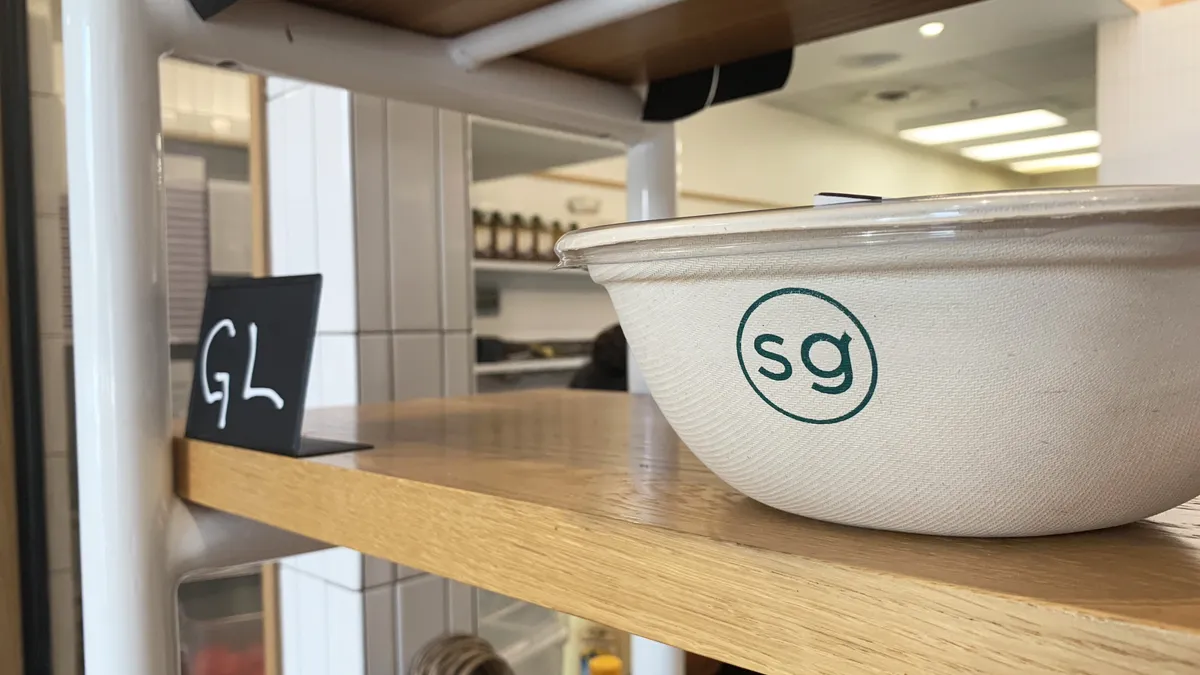UPDATE: September 27, 2019: Sweetgreen has entered an exclusive delivery partnership with Uber Eats, according to an Uber press release.
Dive Brief:
- Sweetgreen raised an additional $150 million, led by Lone Pine Capital and D1 Capital Partners alongside True Ventures and other existing investors, according to The Wall Street Journal.
- Its valuation increased to $1.6 billion, compared to $1 billion 10 months ago.
- The tech-centric salad chain will use the new capital to launch an app-based delivery program in 2020 and to grow its Outpost locations from over 400 offices to 600 by year's end, according to a press release. It is also eyeing new sites in Miami, Denver and Austin, Texas for next year.
Dive Insight:
Perhaps the biggest impact of the latest round of funding for the salad chain is how it will provide the company with a means to set up its delivery program.
Sweetgreen has increased its focus on off-premise of late. In June, the company acquired Galley Foods, a meal service that delivers ready-to-eat food, with plans to leverage its logistics technology, live courier operations and production capacity. The deal is its only acquisition to date.
It makes sense for the tech-focused restaurant to double down on delivery since it already uses data and machine learning technology to predict sales, figure out labor and food needs and manage its supply chain using blockchain.
A bulk of its orders are already made through its app as well, co-founder and CEO Jonathan Neman told The Wall Street Journal, which bodes well for the brand if it does launch a delivery program.
The exclusive Uber Eats deal may be a play to diversify off-premise strategy and maintain access to Uber's customer base, which could provide stability as Sweetgreen develops its own delivery system. Still, it's possible it could join a handful of other restaurants, including Domino’s and Jimmy John’s, that prefer to use self-delivery. It could also be moving toward a similar model as Panera, which recently partnered with third-party delivery providers to appear on their websites while still using its own delivery fleet.
The company will roll out a new prototype, Sweetgreen 3.0, in New York City this fall, which will remove the assembly line and add digital kiosks where customers can order and customize their meals.
Investors are increasingly eyeing investments for tech-centric and mid-sized restaurants. Kura Sushi, which went public this summer, raised $41 million on its first day of trading. It too is also heavily dependent on technology, using a robot to make sushi, among other innovations.
While smaller chains are finding success by building models around technology, giant restaurant companies like Yum Brands and McDonald's are quickly trying to catch up, making it clear that restaurants that can innovate will be the most likely to succeed.












